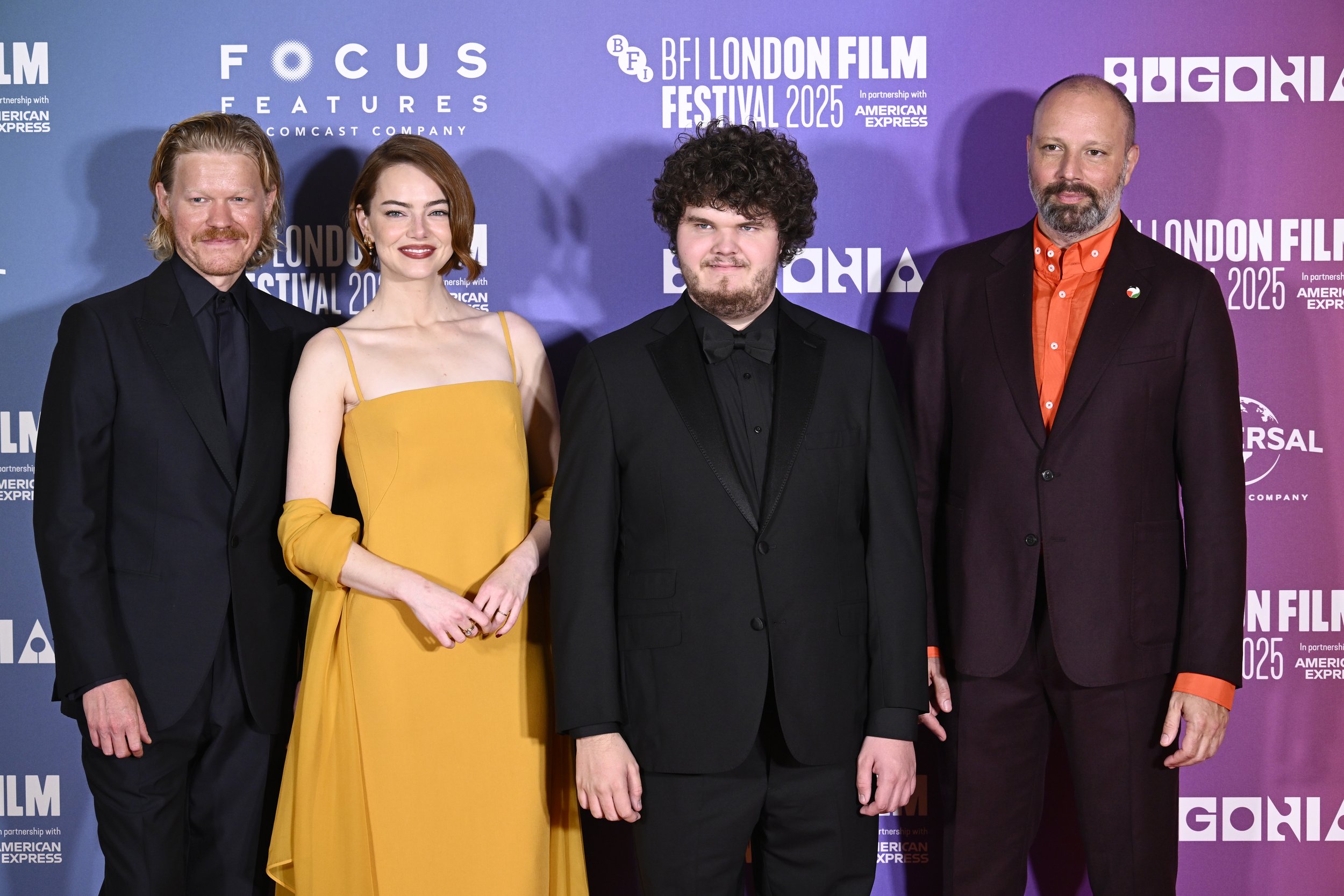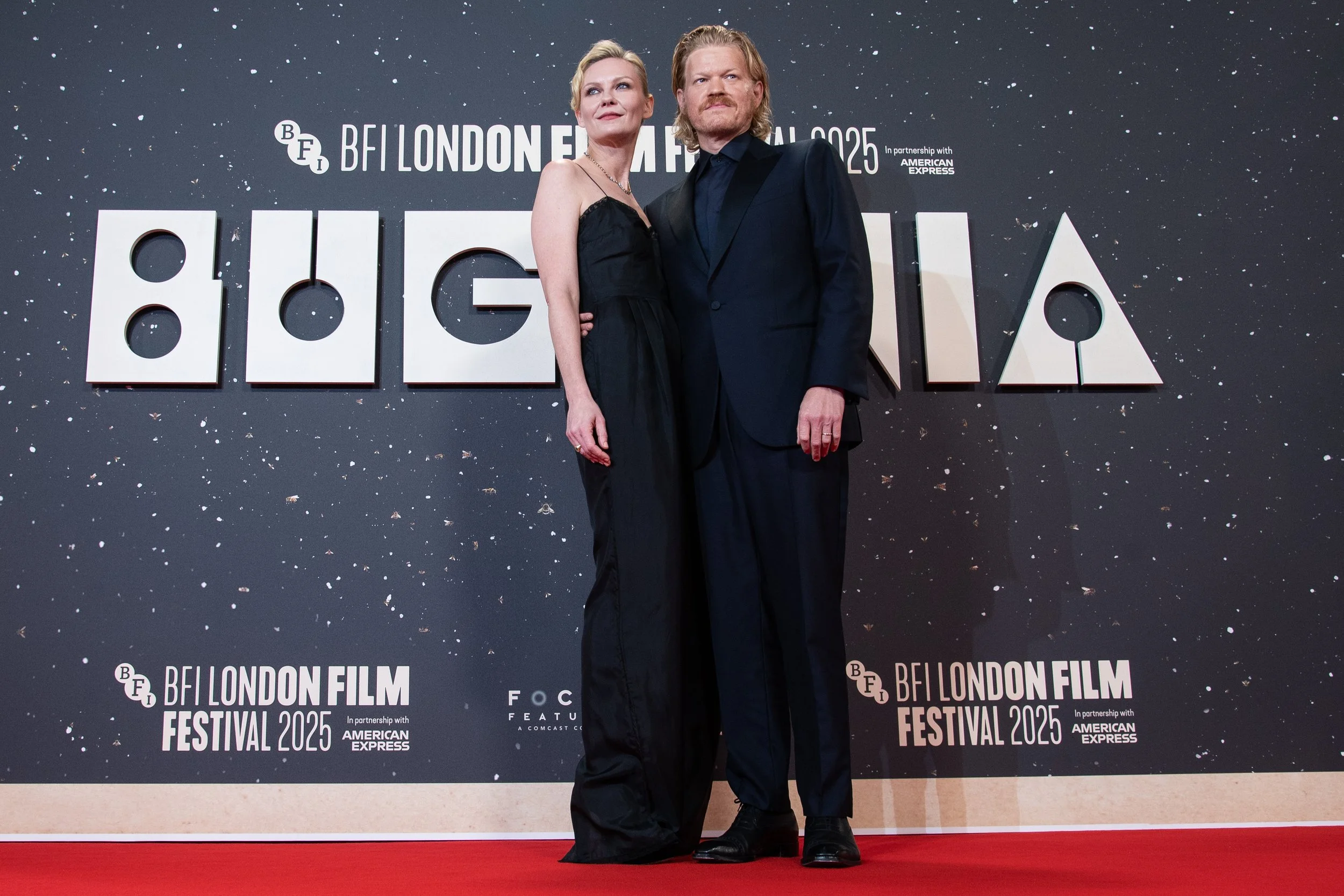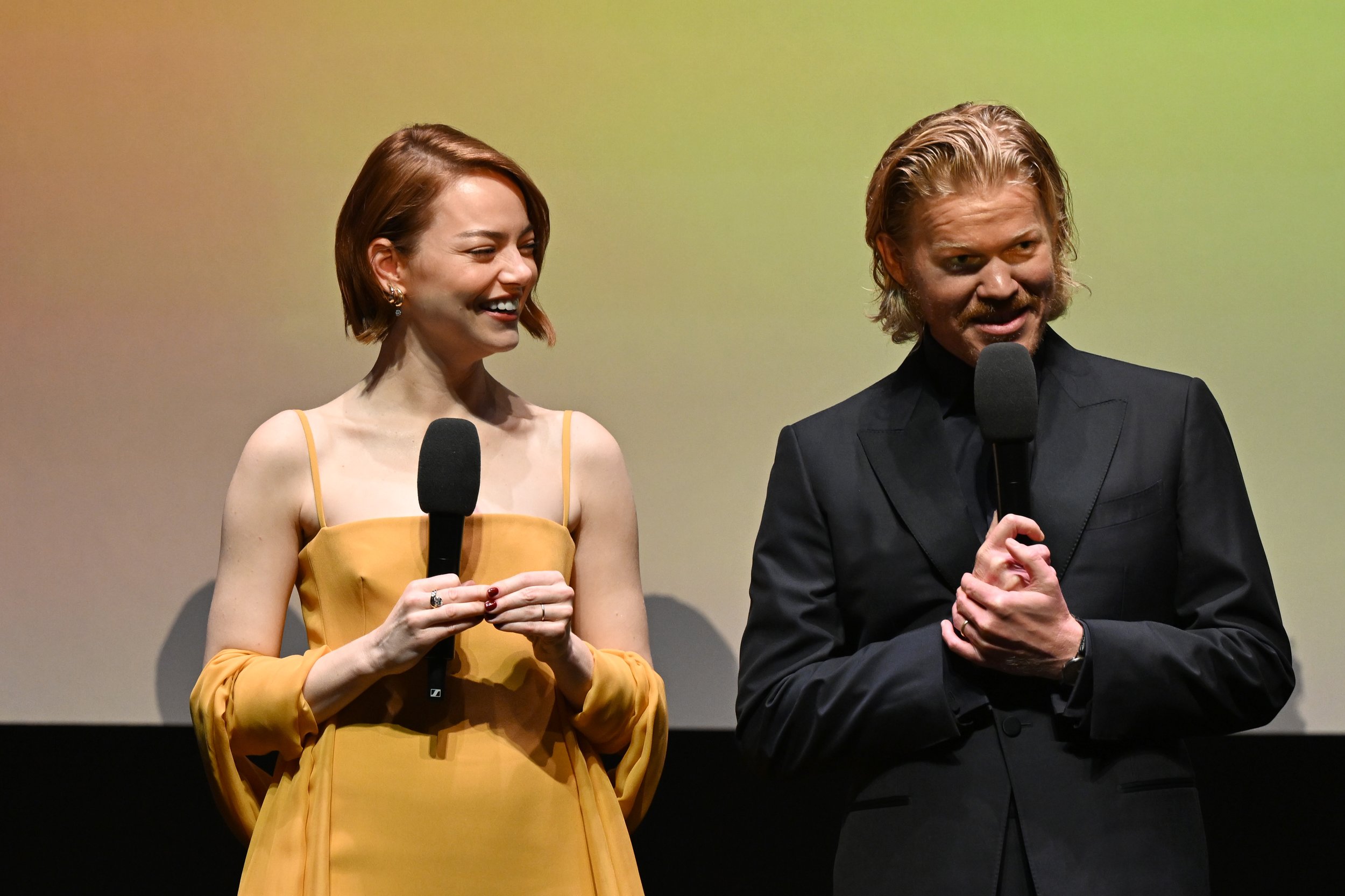
Parable or Paranoia? Bugonia Splits Itself in Two
From its opening minutes, Bugonia stakes out a tone of disquieting uncertainty: we are immediately swept into Teddy Gartz’s (Jesse Plemons) worldview, in which bees, conspiracies, and entropy are all entangled. It’s a quietly hypnotic introduction, one that immediately sets the stage for the two films that will unfold in parallel. One a deep, unnerving character study, and the other a sensationalised parable about paranoia and belief.
We meet Teddy first, speaking in measured, reverent tones about the decline of bees and framing them as a barometer of humanity’s moral decay. Soon after comes Don (Aidan Delbis, in a breakout performance), Teddy’s cousin and confidant, whose dependence on him borders on emotional imprisonment. And then, Emma Stone’s Michelle Fuller — a formidable CEO whose elegance and ambiguity instantly destabilize everything around her. Across these three figures, director Yorgos Lanthimos and screenwriter Will Tracy construct a twisted “hostage-interrogation” narrative that can be watched in two entirely different ways. A claustrophobic human drama or a cosmic allegory.
The beauty of Bugonia lies in its double vision. One film — the first and more grounded — is a tense psychological thriller that charts the unraveling of Teddy’s obsession and Michelle’s desperate performance of control. The other is a grander, more theatrical parable about the stories we build to justify power and survival. These films coexist, refracting off each other like mirrors facing inward. Depending on which version you choose to see, the other haunts the edges of every frame.
Emma Stone anchors this ambiguity. Her Michelle Fuller is precise and magnetic, wielding charm like a blade. Stone captures the unease of a woman performing reason amid madness, or perhaps performing humanity amid something else entirely. It’s a masterclass in controlled opacity. She’s never quite who you think she is, and the film’s entire tension depends on that.
Jesse Plemons, by contrast, burns with volatility. His Teddy is manic and doctrinal, his conviction both tragic and terrifying. We’ve seen Plemons play quiet menace before, but here he weaponizes empathy. His paranoia feels heartbreakingly earned, even when it curdles into cruelty. Delbis, meanwhile, brings tenderness to Don, the emotional hinge between belief and disbelief. His fragility becomes the personification of the audience’s own confusion. Together, the trio produce a friction so precise that the film’s dual narratives can plausibly coexist.
One of reason collapsing, another of revelation emerging.
The film’s ambition is undeniable. Bugonia wants to interrogate humanity’s corruption, ecological hubris, inequality, and our desperate search for meaning amid chaos. Yet at times, those ambitions feel overdetermined. Where Lanthimos’ The Favourite and Poor Things let their moral questions bleed through absurdity and behavior, Bugonia sometimes announces its ideas too directly. Monologues linger a beat too long. Metaphors stretch thin, and the script edges toward sermon where silence might have spoken louder.
Still, when the film lets ambiguity breathe, it’s electrifying. The central question — “Is Michelle Fuller an alien?” — is less about truth than about faith.
If she’s human, Bugonia becomes a gripping psychological study of manipulation and masculine fragility. If she’s alien, it transforms into a fable about the limits of human comprehension. The brilliance of Lanthimos’ design is that both readings can coexist, and both are valid. The audience, like the characters, must decide what world they’re in.
Robbie Ryan’s cinematography reinforces this duality. His wide, isolating frames evoke a clinical detachment that can feel either documentary or dreamlike. Jerskin Fendrix’s score hums between menace and absurdity, keeping the tone perpetually unstable. Lanthimos thrives on these tonal fractures. Dark humor dissolves into dread. Tenderness mutates into horror. The film’s texture is that of two frequencies playing at once, and it’s in their dissonance that Bugonia finds its rhythm.
Sitting in BFI’s Royal Festival Hall, you could feel the split. Some were watching a blackly comic thriller about delusion and control. Others were watching a tragicomic tale about faith, corruption, and the perils of disbelief. Both groups laughed and gasped at different beats, and both were right. Bugonia rewards whichever version of the story you choose to see, even as it quietly mocks our need to decide.
It’s a film about perspective — about how belief can warp reality, and how paranoia can become its own form of faith. It delivers its critique of humanity, inequality, and truth-seeking not through resolution but through fracture.
I left the cinema after choosing one of the two films on offer: the psychological thriller about a man’s collapse. But part of me wonders what I’d see on a second viewing if I’d surrendered to the parable in the first 15 minutes instead.




